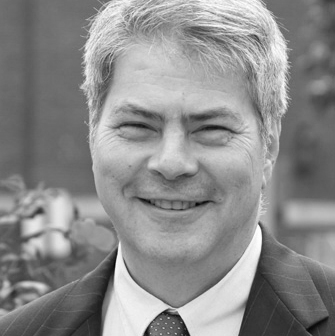
People
These Are Our Game Changers
EDI Game Changer
Photo Credit: Tom Cogill.
In recognition of Women’s History Month, the Office of Equity, Diversity, and Inclusion (EDI) has selected the National Institutes of Health (NIH) Director, Dr. Francis Collins for being a catalyst for change by challenging platforms that disadvantage women, while continuing his commitment to the success of the NIH. Dr. Collins is an example of how men can advocate for women’s rights, contribute to changing the culture, and help prevent gender discrimination. By recognizing that men have a place of privilege, they can use their power to shift cultures that negatively affect women.
Colin is nominated for his role in creating the Partners in Review Committee (PRIC). The goal of the committee is to enhance the communication and working relationships between Extramural Support Staff (ESS) and scientific staff. This committee is made up of senior staff, administrative staff, HR Staff, and scientific staff.
What led you to your career? Did you choose it? Did it choose you?
I would have to say this career has chosen me. NIH is full of diversity and we play a big role when it comes to helping others in need.
Of what professional accomplishment here at the NIH are you most proud?
Dr. Symma Finn serves as Program Director for the National Institutes of Health (NIH)-Environmental Protection Agency (EPA) Centers of Excellence for Health Disparities Research and oversees outreach and dissemination activities for the Breast Cancer and the Environment Research Program. Dr. Finn is the National Institute of Environmental Health Sciences (NIEHS) point of contact for Tribal research and serves on a number of NIH and trans-federal committees related to Traditional Ecological Knowledge (TEK), environmental justice and social scientific research.
We asked Dr. FInna to share her thoughts on working at the NIH and what diversity in science means.
What gained your interest in the NIH?
Michael A Sesma, Ph.D.; Chief, Postdoctoral Training Branch, Division of Training, Workforce Development and Diversity, National Institute of General Medical Sciences (NIGMS)
What inspired you to become a scientist?
Game Changers are institution builders. They revolutionize organizational culture, cultivate and harness creative ideas, and uphold equity, diversity, and inclusion.
What is your name?
Jimmy Do
Where were you born?
I was born in Saigon, which is in southern Vietnam.
How important is community outreach to you?
Dr. Susan K. Buchanan, Ph.D. is a research scientist in the intramural program, running her own research group of about 8 people. In addition, she is the Chief of Molecular Biology, where she oversees 9 other research groups as one of only two women Lab/Branch Chiefs in in the National Institute for Diabetes & Digestive & Kidney Diseases (NIDDK) at the National Institutes of Health (NIH). She was recently promoted to Deputy Scientific Director at NIDDK.
Meet Dr. Rita Devine, the Assistant Director, for Science Administration at National Institute of Neurological Disorders and Stroke (NINDS) at the National Institutes of Health (NIH). The Office of Equity, Diversity, and Inclusion (EDI) recognizes Dr. Devine because of her commitment to diversity and inclusion at the NIH. Dr. Devine’s support for NIH’s diversity and inclusion initiatives has resulted in numerous internships and life-changing opportunities for many underrepresented groups. She has overseen the participation of Native Americans (NA) in the NIH summer internship program for the past eleven years in addition to many other contributions she makes each day to the NIH. Dr.
My name is David Rice, I work for NIH and I Am HHS. For me, being deaf has been a blessing -- and it has made me who I am today.
I am pleased to nominate Dr. Ofelia A. Olivero as an NIH Game Changer, in recognition for her leadership and commitment to furthering NIH’s equity diversity and inclusion efforts. Dr. Olivero is widely respected for her support of equal opportunities and for conveying the importance of mentoring across cultural and gender backgrounds. Dr. Olivero’s support to NIH’s diversity and inclusion (D&I) has resulted in numerous training fellows gaining access to NIH programs, most of them from underrepresented groups. A list of more than 35 program participants, all directly hired and mentored by her is a remarkable accomplishment. Most of her students are now either Ph.D. and/or M.D.
This article was originally published on the I am Intramural blog by Ben Chambers, Chief of Multimedia Strategy for the NIH IRP.
Nine days after the monstrous 2016 blizzard nicknamed Snowzilla, the sun shone in a bright blue sky on a balmy 50-degree day at the main NIH campus in Bethesda, Maryland—the perfect setting for a four-mile run with two men who’ve logged nearly a thousand miles together.
This month, we sat down with the newly established Sexual and Gender Minority Research Office at the National Institutes of Health to learn more about their operations and the future of SGM biomedical research.
What does SGM mean?
SGM is an acronym meaning 'Sexual and Gender Minority.' It is an umbrella term that encompasses lesbian, gay, bisexual, and transgender populations as well as those whose sexual orientation, gender identity and expressions, or reproductive development varies from traditional, societal, cultural, or physiological norms.
Phil Lenowitz, former Deputy Director of the NIH Office of Human Resources (OHR), is a recipient of the 2013 NIH Office of the Director Merit Award for his remarkable work and noteworthy efforts in pioneering the first-ever NIH Veterans Day Celebration in 2012. The NIH Office of Equity, Diversity, and Inclusion has selected Phil as our (Month Year) Game Changer because of his firm commitment in diversity and inclusion, and his deeply rooted understanding that our veterans are a critical piece of our overall diversity strategy. He has proudly made our veterans a priority for the NIH.





